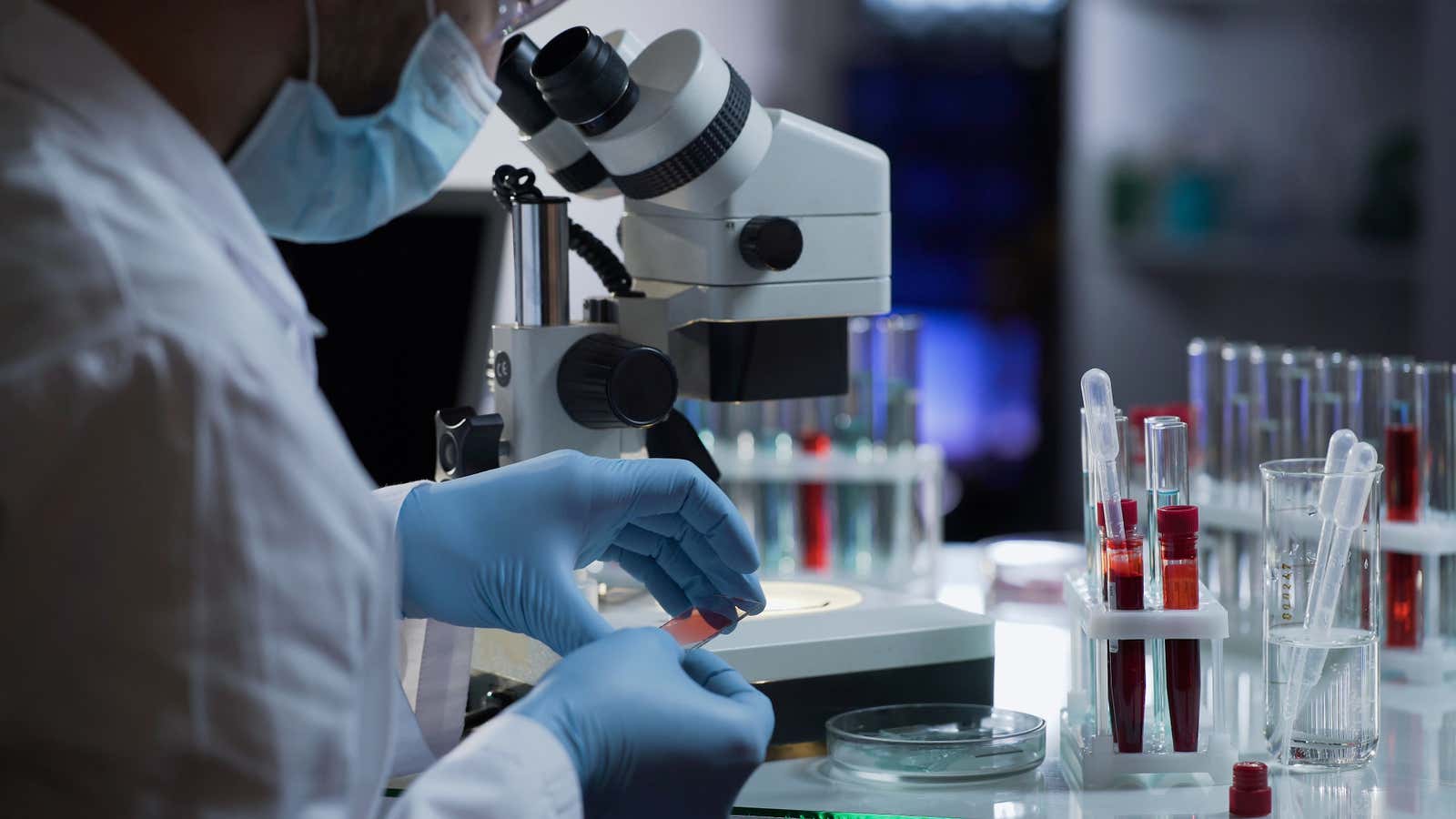What COVID-19 Antibody Test Can (and Cannot) Say

Antibody testing is designed to determine if you have been exposed to the coronavirus in the past, whether you have had actual symptoms of COVID-19 or not. Now that Kroger is rolling out rapid antibody testing across all of its pharmacies (cost: $ 25), it’s important to remember what an antibody test can and cannot.
You can assume that a positive COVID-19 antibody test indicates that you have immunity and may safely reduce physical distancing measures. But that’s unreasonable – the CDC says we should all take the same precautions regardless of antibody test results. The test may be wrong, and even if it is correct, we do not yet know enough about the coronavirus to tell if a person with antibodies is immune to future infection.
Context is key for test results
When it comes to interpreting test results, context is everything. “There is a concept in medicine and laboratory research called probabilities,” says Dr. S. Wesley Long of Houston Methodist Hospital. “What is the likelihood that this patient has what you are testing?”
In other words, if someone had COVID-19 symptoms and tested positive for antibodies, then there is a good chance that the test result will be accurate. If a person has been hiding on a secluded island, has not been in contact with the outside world, and has never had symptoms of COVID-19, but still tested positive … well, there is a higher chance that the test result may be inaccurate. Given how new these tests are, context is especially important.
“If you’ve never had any symptoms, be careful when interpreting the results,” Long says. We still don’t know how common asymptomatic transmission is, so if you’ve never had symptoms but still tested positive, this is a situation that warrants extra caution – you certainly don’t want to assume immunity when you don’t. By the way, about immunity …
Does a positive test result mean I’m immune?
If you have had symptoms of COVID-19 in the past and have tested positive for antibodies, there is a good chance that you are immune. However, there is still a lot we don’t know about COVID-19, including how long any possible immunity might last.
“We don’t have enough data yet to know if these antibodies actually protect against re-infection, and how long that might be,” Long says. “We think they are probably protecting a lot of people, but we don’t know.”
It is also very possible that a positive test may be wrong. High accuracy tests still have a small percentage of false positives, and false positives are especially common with these types of tests.
For example, the FDA calculates that a false positive test by Assure (which appears to be the test that Kroger uses) has an 80% chance of having antibodies if you live in an area where 5% of people have already been infected. virus. We are explaining the math here , but the short explanation is that when true positives are rare, false positives are common. In most parts of the United States, less than 10% of the population has contracted the virus .
Does a negative result mean that I am not insured?
There is also the possibility that you will be diagnosed with a case of COVID-19 and then the antibody test against the virus will still be negative. Some people, for whatever reason, do not develop enough antibodies to cause a positive result.
If you get a negative test despite a confirmed case of COVID-19, there could be several reasons. One scenario is that due to the sensitivity level of the test, antibodies against the virus are present but not detectable. This does not necessarily mean that you are not immune, it could simply mean that your antibody levels are below the detection threshold for that particular test.
Another reason may be that for some reason you have not developed immunity despite the fact that you are sick. This is very rare, but there are reports of children getting chickenpox multiple times , although in most cases, a single exposure is enough to provide strong immunity.
Make sure your test is FDA approved.
Be sure to research the specific test before taking an antibody test. “Not all antibody tests are the same,” Long says. He emphasizes that it is important to pass the FDA-approved test through the Emergency Use Authorization. A good place to start is to check the FDA website, which lists all EUAs issued for COVID-19, including serological tests.
At the start of the pandemic, this was especially important given that the market was flooded with reports of really crappy tests . That doesn’t seem to be a concern now, but back in October, the FDA warned that fraudulent tests, vaccines, and treatments still exist.
This post was originally published in April 2020 and was updated on October 29, 2020 by Beth Skoreki to include Kroger’s deployment of rapid consumer-level testing, provide more information on the potential for false positives, and address concerns of an early pandemic about how society is organized around who is and is not insured.